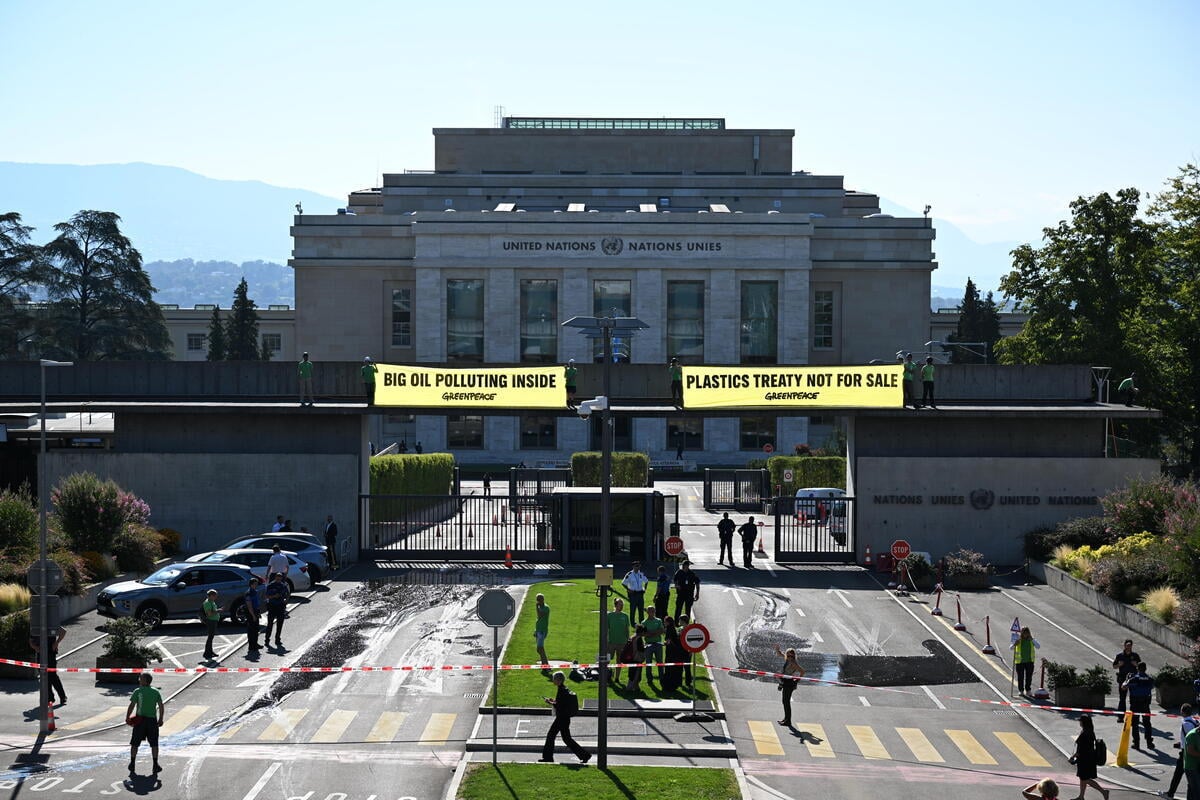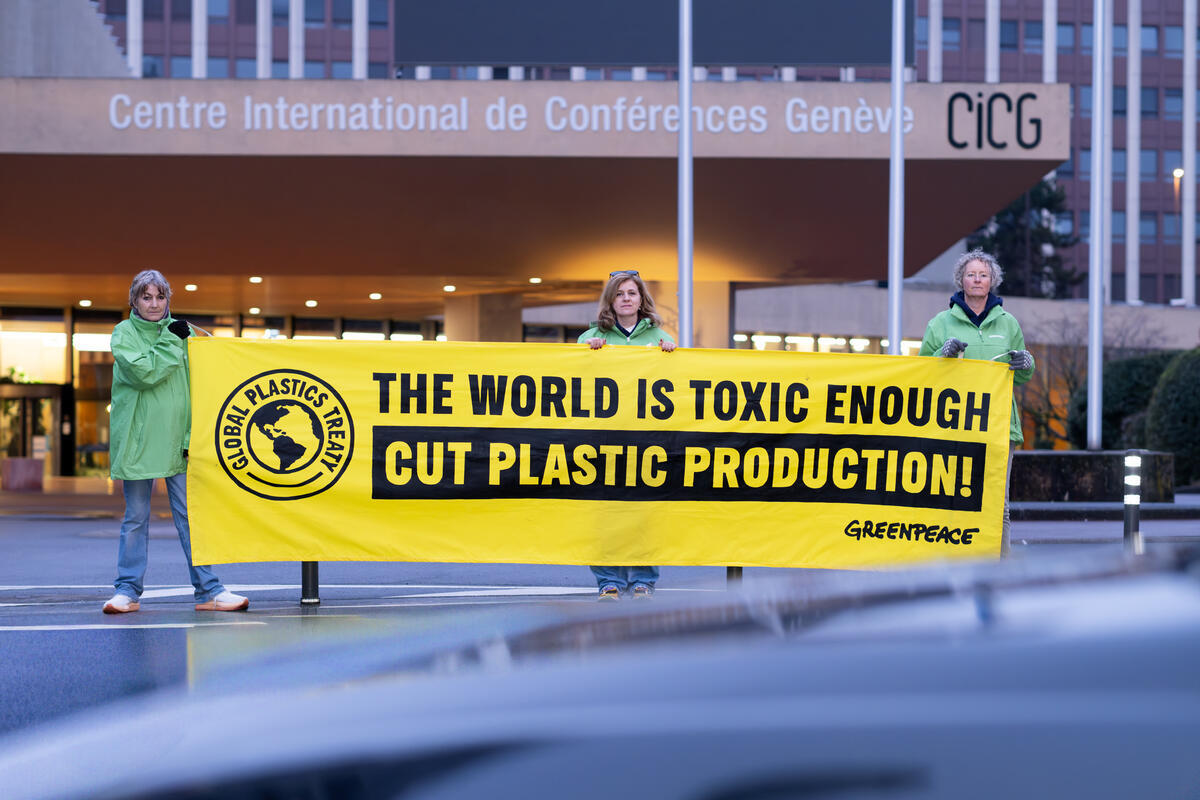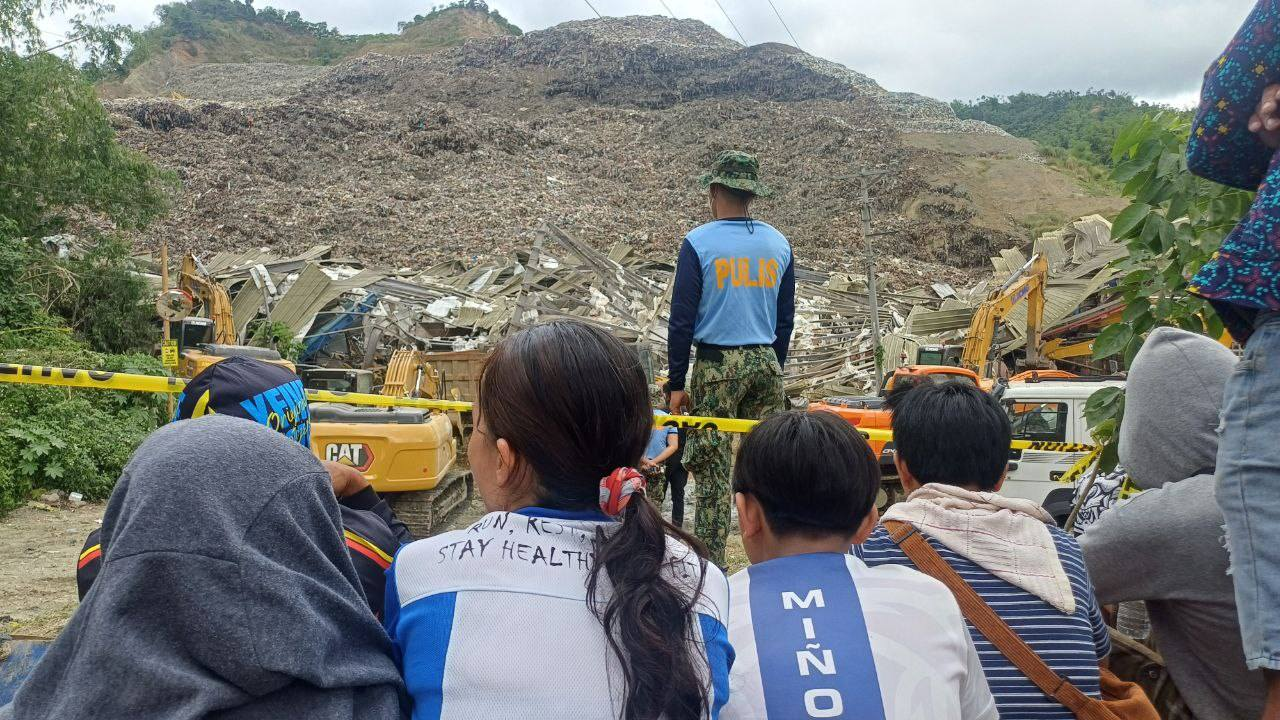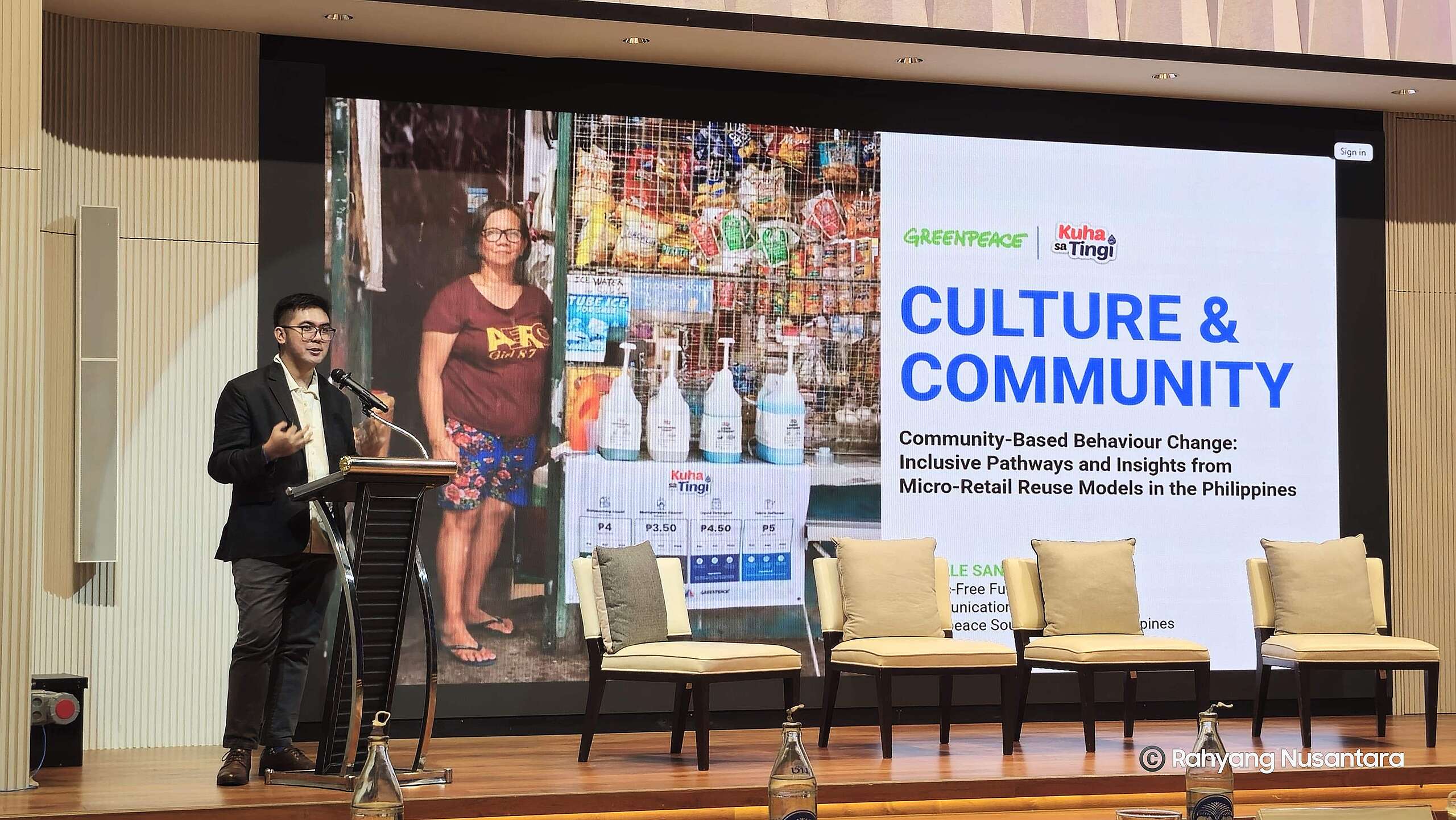Civil society, scientists, and communities urge governments to reject watered-down deal, back production cuts

07 August 2025, Geneva, Switzerland/Quezon City, Philippines — Talks for a landmark Global Plastics Treaty resumed in Geneva, Switzerland this week amid mounting concerns over efforts by oil-producing states and industry lobbyists to derail the ambition and scope of what environmental advocates consider the biggest environmental deal since the Paris Agreement.
Greenpeace Philippines, along with civil society organizations, scientists, and communities from around the world, are sounding the alarm as a bloc of oil-producing states—backed by fossil fuel and petrochemical lobbyists—pushes to narrow the treaty’s focus to waste management, removing provisions related to plastic production, climate, and health impacts. Reports[1] revealed the growing presence of fossil fuel and petrochemical industry representatives in the negotiations, with over 200 industry-linked observers participating in previous sessions.
“The Plastics Treaty is under threat,” said Marian Ledesma, Zero Waste Campaigner at Greenpeace Philippines, who is in Geneva attending the talks. “If governments do not ensure that measures for production reduction, phaseout of problematic single-use plastics, and hazardous chemical elimination are in the treaty, we will end up with a weak agreement that protects corporate profits over people’s health and the environment.”
The ongoing negotiations mark the final round of talks for the legally binding treaty on plastic pollution. Advocates say this is a critical moment for governments to reject industry-driven proposals and instead support binding targets that phase down plastic production, eliminate single-use plastics and toxic chemicals, and support a just transition to reuse systems.
“The Philippines must take a bold stand in these talks,” said Ledesma. “We need countries to establish real solutions supported by just financial mechanisms. The recent advisory opinion from the International Court of Justice[2] makes it clear: states have a duty to ensure everyone’s right to a safe, healthy, and sustainable environment. That won’t be possible if plastic production continues to skyrocket.”
During the opening plenary, the Scientists’ Coalition for an Effective Plastics Treaty said in a statement, “Plastic pollution, including nano-, micro-, and macro-plastics, is leaked and released along the full life cycle of plastics. Plastic pollution directly and indirectly harms human and environmental health, as confirmed by decades of international research.” The international network of scientific and technical experts also emphasized the need for “a legally-binding treaty with the scope to cover the full life cycle of plastics” and “mandatory obligations to prevent plastic pollution at the source.”
In the Philippines, over 80 organizations, academic institutions, and businesses have submitted a letter[3] to the Department of Environment and Natural Resources (DENR), urging the Philippine delegation to align with countries demanding an ambitious treaty that prioritizes upstream solutions like reduction and reuse over downstream waste management strategies.
“Plastic pollution doesn’t start in our homes. It starts in boardrooms and factories,” Ledesma said. “No amount of recycling or cleanup can undo the damage caused by relentless plastic production. Our world leaders must have the courage to stop plastic at the source.”
Greenpeace Philippines calls on the government to:
- Back a global target to cut primary plastic production.
- Support the phaseout of common single-use plastics and toxic chemicals.
- Establish zero-waste systems like reuse and refill.
- Protect health through programs that uphold environmental rights.
- Ensure inclusive consultations with youth, small businesses, and affected workers.
- Push for fair financing and trade rules.
- Ground the treaty in human rights, just transition, and sound environmental policy.
###
Notes to Editors:
[1] New Greenpeace report exposes petrochemical giants campaign to derail Global Plastics Treaty
[2] World’s highest court delivers historic protections for climate-impacted communities
For more information and interview requests, please contact:
Karl Orit
Communications Campaigner
Greenpeace Southeast Asia – Philippines
[email protected] | +63 919 457 1064 (Viber & WhatsApp)



